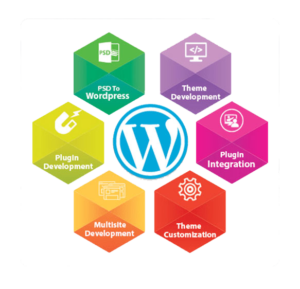
WordPress Development: Using the Power
WordPress Development: Using the Power : From the amazing world of WordPress programming, greetings! The goal of this blog post is to educate and inspire developers of all experience levels about the countless opportunities that WordPress presents. We’ll look at practical uses, best practices, and the newest developments in WordPress development. So grab a cup of coffee, and let’s embark on this journey together!
Because of its powerful content management system, WordPress makes it simple to create and maintain websites. It is PHP-based and runs on a MySQL database. A hosting firm, WordPress software, and a domain name are necessary before you can start. Once installed, you can customize your website with plugins, themes, and unique code.


Customizing Themes
Although WordPress offers a wide variety of themes, sometimes certain customizations are required. Instead of directly changing the parent theme, create a child theme. This way, if you update the parent theme, your changes will stay untouched.
Plugin Development
WordPress plugins are an excellent way to enhance functionality. When developing plugins, follow recommended practices: use hooks and filters, tidy up user input, and appropriately describe your code.
Performance Optimization
Users may become agitated and SEO may suffer from slow websites. To optimize your WordPress website, employ cache plugins, minimize the number of CSS and JavaScript files, compress your photographs, and make use of browser caching.
Gutenberg Editor
The Gutenberg editor transformed content development for WordPress. It introduced a block-based paradigm that made the task of designing dynamic, intricate layouts easier. To make your web pages better, stay up to date with the latest Gutenberg features and look into block development.
Headless WordPress
WordPress acts as a content management system and separates the front end from the back end without a head, allowing front-end developers to use modern JavaScript frameworks like React or Vue.js for front-end development. This trend offers greater flexibility and performance.
Mobile-First Development
The majority of internet users visit websites via mobile devices, so it’s imperative to prioritize mobile-first development. Ensure that your themes and plugins are responsive and operate well across a range of screen widths.


Developers of different skill levels can find several opportunities in WordPress programming. Beginners might start by exploring pre-built themes and plugins to progressively learn how to expand and personalize them. More skilled developers can create unique themes and plugins using PHP and the WordPress API.
We would be happy to hear your thoughts and address any questions you may have about WordPress development. Please share your thoughts, suggestions, and challenges in the comments section below. Let’s work together to build a friendly community where we can all grow and learn!

In order to attract natural traffic, we have optimized this blog post for search engines. By utilizing relevant keywords, thought-provoking material, and suitable headings and meta descriptions, we aim to make this page more visible to readers who are searching for WordPress development insights.
WordPress development is an exciting and ever-evolving area with a plethora of chances. No matter how experienced a developer is, there’s always something new to find and learn. By following recommended practices, staying up to date with emerging trends, and engaging with the WordPress community, you can make the most of WordPress and create stunning websites. Alone with WordPress development, let’s take it to the next level!

